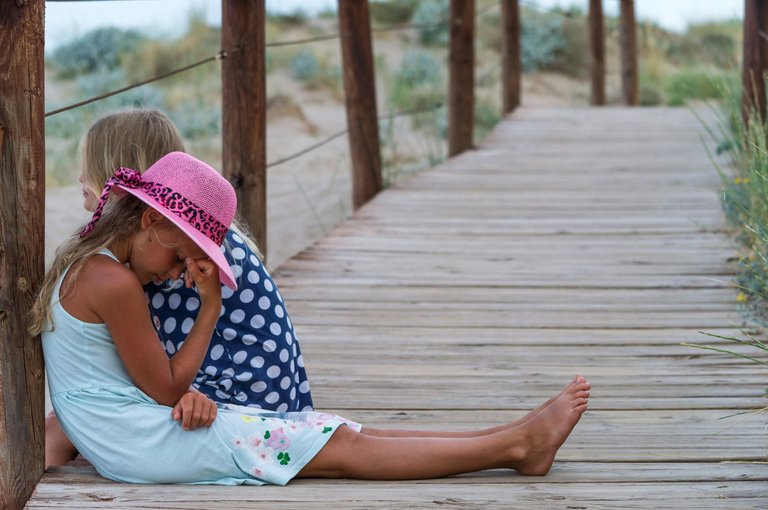This sounds like a light-hearted topic, doesn't it? 😅
So, it might not be all roses and sunshine but what I want to share feels profound, so let's see if I can get it into words that will make sense to anyone else. 🤔
I have recently discovered that the way I was raised as a child led me to believe I couldn't do hard things. It wasn't that my parents were bad people, I know they loved me and did the very best they could. I'm alive today so I know they did many things well.
But through a series of repeated experiences I came to learn that any time I was struggling with something, someone would come and do it for me.
I know many people have a totally different experience and don't get enough help and are left to fend for themselves. This sucks too as the ideal situation is to get the right amount of support at the right time for whatever stage of development we are at as children. (As this sets the frame for the rest of our adult lives unless we choose to do what I'm currently doing: changing my unconscious programming).
In my case, always being rescued meant I came to have a deep-seated pattern that is often referred to as "learned helplessness". That is, I learned to be helpless. To be more specific, it means I learned that I cannot help myself.
So in far too many situations in my adult life when something was too hard for me to do on my own with the skills and knowledge I had, I would just not do it.
I didn't realise it at the time but I was unconsciously waiting for someone else to come and do it for me.
Somewhere in my trauma-healing process, I came to realise I was behaving this way.
{I reckon half the battle is finding the patterns in the first place. People reckon that healing trauma is hard and it can be, but healing it is sometimes easier than even seeing it live inside you in the first place. I think Carl Jung said it best when he stated: "The thing about the unconscious is that it is unconscious."}
Now that I've seen it, of course, I cannot unsee it. Not that I would want to. Thankfully, I have lots of tools for changing this pattern.
One of the first ones is just playing with the desired behaviour.
I realised I could do this when I found myself struggling to build a new website. I've never really built one before. Sure, I've done some things on the backend of websites. I've built courses and I'm not a complete tech newbie. (Clearly, as she writes on Hive :P).
But this new project requires me to learn so many new skills I've never had to use before. So many. It's been doing my head in. And that's the thing: at first, it was so hard I wanted to give up.
Then I realised: "No one is coming to save me. If this is going to get done then I have to do it myself."
So I would try something, and it wouldn't work. Or one thing would work and then the next thing wouldn't. I'd want to throw the computer or cry or scream out of sheer frustration. But all that was happening was my old learned helplessness was coming to the surface to be healed.
I learned - after this process repeated again and again and again - to do as much as I could each morning and then stop before I had a total meltdown. I would walk away and do other necessary tasks for the day and ask myself to come back to it tomorrow.
The hardest thing about building this new website hasn't been learning how to visually design a page, write an email campaign inside this new framework or make an order form work, it's been navigating how I feel about failing.
It's been learning how to be okay with not knowing what I'm doing and it taking three or four or five times to figure out how to do something.
But I'm getting there. And in the process, I'm learning what it feels like to feel truly satisfied. Because when I finally figure out how to do something I didn't know how to do a week earlier, and I do it myself without being rescued, I feel immensely satisfied when I realise that I can, in fact, do hard things.


Oh yes I get frustrated SO HARD and in suspect it's for similar reasons. I don't think I was taught persistence and I'm not particularly resilient. Good on you for recognizing this and finding tools to persist.
Thanks, babe. I think we can built persistence and resilience by doing things we find just a bit too hard, finding a way (any way) to push through that initial resistance and the dopamine hit of getting it done then helps us do it again and again and again.